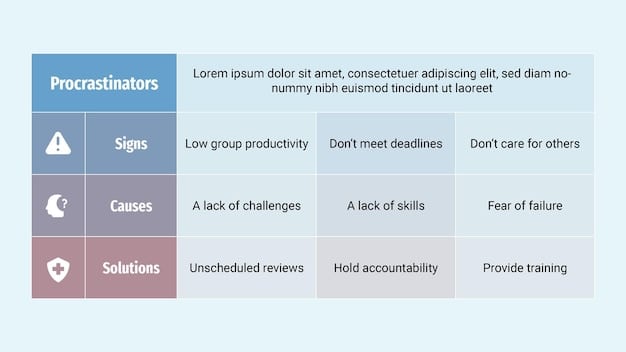Short-Term Health Insurance: Is It Right for You?

Short-term health insurance offers temporary coverage but comes with potential risks, including limited benefits, pre-existing condition exclusions, and no guarantee of renewal, making it crucial to weigh its pros and cons against your healthcare needs.
Navigating the landscape of health insurance can be daunting, especially when you need coverage quickly. Short-term health insurance: A temporary solution or a risky gamble? Understanding the nuances of these plans is essential.
Understanding Short-Term Health Insurance
Short-term health insurance plans are designed to provide temporary coverage for individuals and families facing a gap in their health insurance. These plans can be useful in various situations, such as between jobs, while waiting for coverage to start, or when needing a bridge until the next open enrollment period.
However, it’s crucial to understand what these plans are and how they differ from traditional health insurance options. They often have specific limitations and may not cover all the same benefits.
Defining Short-Term Health Insurance
Short-term health insurance, also known as temporary health insurance, offers coverage for a limited time frame, typically ranging from one to twelve months. These plans are not compliant with the Affordable Care Act (ACA), meaning they don’t have to cover the same essential health benefits as ACA-compliant plans.
This lack of ACA compliance allows them to be more flexible and often more affordable, but it also means they can exclude coverage for pre-existing conditions and may have annual or lifetime benefit limits.
Key Differences from ACA Plans
The main difference between short-term and ACA-compliant health insurance lies in the benefits and protections offered. ACA plans must cover essential health benefits like maternity care, mental health services, and prescription drugs. They also protect individuals with pre-existing conditions, preventing insurers from denying coverage or charging higher premiums.
Short-term plans, on the other hand, can deny coverage or charge higher premiums based on health status and often exclude coverage for these essential benefits. This makes them a more affordable option for some, but also potentially riskier.
- ACA Plans: Comprehensive coverage, essential benefits, pre-existing condition protection.
- Short-Term Plans: Temporary coverage, fewer required benefits, potential exclusions based on health.
- Cost: ACA plans may be more expensive due to broader coverage; short-term plans often have lower premiums.
In summary, short-term health insurance offers a quick, affordable solution for temporary health coverage, but it’s crucial to weigh the risks and limitations against your individual healthcare needs.
Pros and Cons: Weighing the Options
When considering short-term health insurance, it’s important to evaluate the advantages and disadvantages to determine if it aligns with your personal and financial circumstances. While the lower premiums can be appealing, understanding the potential drawbacks is equally crucial.
By balancing the pros and cons, you can make an informed decision about whether opting for short-term coverage is the right choice for your healthcare needs.

The Advantages of Short-Term Plans
One of the primary benefits of short-term health insurance is its affordability. The premiums are generally lower than those of ACA-compliant plans, making it an attractive option for individuals who are healthy and on a tight budget. These plans also offer flexibility, allowing you to choose your coverage duration and potentially renew the policy if needed.
Additionally, the application process is typically quick and straightforward, providing fast access to coverage when you need it most.
Potential Drawbacks and Risks
Despite the advantages, short-term health insurance comes with significant risks. One of the major drawbacks is the potential denial of coverage for pre-existing conditions. If you have any health issues, you might find that these plans won’t cover related medical expenses.
Furthermore, short-term plans often don’t include essential benefits required by the ACA, such as maternity care, mental health services, and prescription drug coverage. There is also no guarantee of renewal, meaning your coverage could be terminated unexpectedly.
- Lower Premiums: More affordable than ACA plans, especially for healthy individuals.
- Coverage Gaps: Potential denial for pre-existing conditions and limited essential benefits.
- Flexibility: Customizable coverage duration with quick application process.
Ultimately, while short-term health insurance offers affordability and flexibility, it’s essential to be aware of the potential drawbacks, including limited coverage and the risk of being denied care for pre-existing conditions.
Who Should Consider Short-Term Insurance?
Not everyone is a suitable candidate for short-term health insurance. It’s best suited for specific situations and individuals with particular healthcare needs. Knowing whether you fit into these categories can help you make a more informed decision.
Understanding the ideal scenarios for short-term coverage ensures it serves as a beneficial solution rather than a risky gamble.
Ideal Scenarios for Temporary Coverage
Short-term health insurance is often a good fit for individuals who are between jobs and need temporary coverage until their new employer-sponsored health plan starts. It’s also suitable for recent graduates who are no longer covered by their parents’ insurance and are seeking a bridge until they find full-time employment with benefits.
Additionally, people who missed the open enrollment period for ACA plans may find short-term coverage useful for bridging the gap until the next enrollment period.
When It Might Not Be the Best Choice
If you have pre-existing health conditions or require ongoing medical care, short-term health insurance may not be the best choice. These plans often deny coverage for pre-existing conditions, leaving you responsible for potentially high medical bills. Additionally, if you need specific benefits like maternity care or mental health services, ACA-compliant plans are generally a better option.
Those who qualify for premium subsidies under the ACA should also consider marketplace plans, as these subsidies can significantly reduce the cost of comprehensive coverage.
- Between Jobs: Need temporary coverage until new employer benefits begin.
- Ongoing Medical Needs: ACA plans offer better coverage for pre-existing conditions and essential benefits.
- Missed Enrollment: A bridge until the next ACA open enrollment period.
In conclusion, short-term health insurance is most beneficial for healthy individuals needing temporary coverage, but it’s less suitable for those with pre-existing conditions or specific healthcare requirements.
Comparing Plans: What to Look For
Choosing the right short-term health insurance plan involves careful consideration of various factors, including coverage, cost, and policy limitations. Comparing different plans and understanding their key features can help you find the best fit for your needs.
Focusing on essential aspects and being aware of potential pitfalls ensures you make a well-informed decision.
Key Features and Coverage Details
When comparing short-term health insurance plans, pay close attention to what the policy covers and excludes. Check for limitations on hospital stays, emergency room visits, and prescription drug coverage. Understand the deductible, copay, and coinsurance amounts, as these will affect your out-of-pocket expenses.
Also, review the policy’s network of doctors and hospitals to ensure you have access to healthcare providers in your area.
Understanding Policy Limitations
Be aware that short-term health insurance plans often have exclusions for pre-existing conditions, maternity care, and mental health services. Some policies may also have annual or lifetime benefit limits, restricting the total amount the insurer will pay for your healthcare.
Read the fine print carefully to understand the policy’s limitations and potential gaps in coverage.

- Coverage: Review what the policy covers and excludes, including hospital stays and prescription drugs.
- Exclusions: Be aware of limitations for pre-existing conditions, maternity care, and mental health services.
- Cost-Sharing: Understand deductibles, copays, and coinsurance to estimate out-of-pocket expenses.
In summary, comparing short-term health insurance plans requires careful examination of coverage details, policy limitations, and cost-sharing arrangements to ensure you find a plan that meets your needs and budget.
Alternatives to Short-Term Health Insurance
If short-term health insurance doesn’t seem like the right fit, there are alternative options to explore. These alternatives can provide more comprehensive coverage or be more suitable for individuals with specific healthcare needs.
Understanding these options allows you to make a choice that best aligns with your overall health and financial well-being.
COBRA Coverage
Consolidated Omnibus Budget Reconciliation Act (COBRA) allows you to continue your employer-sponsored health insurance coverage for a limited time after leaving your job. While COBRA can be more expensive than short-term health insurance, it provides comprehensive coverage and doesn’t exclude pre-existing conditions.
COBRA is a viable option if you want to maintain the same level of coverage you had while employed.
ACA Marketplace Plans
Affordable Care Act (ACA) marketplace plans offer comprehensive health insurance with essential benefits, pre-existing condition protection, and potential eligibility for premium subsidies. These plans can be a more affordable option for those who qualify for subsidies based on their income. Open enrollment usually occurs once a year, but special enrollment periods are available for qualifying life events like job loss or marriage.
ACA marketplace plans are a strong alternative for those seeking comprehensive and affordable coverage.
- COBRA: Maintain employer-sponsored coverage after leaving a job, comprehensive benefits.
- Medicaid: Government-sponsored healthcare for eligible low-income individuals and families.
- ACA Plans: Comprehensive coverage with potential subsidies during open or special enrollment.
In conclusion, alternatives to short-term health insurance include COBRA coverage and ACA marketplace plans, each offering different levels of coverage and potential cost benefits, depending on your individual circumstances and healthcare needs.
Making an Informed Decision
Choosing the right health insurance plan is a significant decision that requires careful consideration of your personal circumstances, healthcare needs, and budget. Evaluating all available options and understanding their implications is crucial for making an informed choice.
By combining your knowledge with expert advice, you can confidently select a plan that provides the best protection and peace of mind.
Reviewing Your Healthcare Needs
Start by assessing your healthcare needs. Consider any pre-existing conditions, prescription medications, and anticipated medical expenses. If you require regular medical care or have chronic health issues, ACA-compliant plans may be a better fit due to their comprehensive coverage and pre-existing condition protection.
If you are generally healthy and need temporary coverage, short-term health insurance might be a suitable option.
Seeking Expert Advice
Consult with a health insurance broker or advisor to get personalized guidance. These professionals can help you navigate the complexities of health insurance and find a plan that aligns with your needs and budget. They can also explain the differences between various plans and help you understand the policy’s limitations.
Getting expert advice ensures you make a well-informed decision based on your specific situation.
- Assess Needs: Consider pre-existing conditions, medications, and anticipated medical expenses.
- Compare Options: Evaluate short-term plans, ACA plans, and other alternatives.
- Seek Advice: Consult with a broker or advisor for personalized guidance.
In summary, making an informed decision about health insurance involves reviewing your healthcare needs, comparing available options, and seeking expert advice to ensure you choose a plan that provides adequate coverage and peace of mind.
| Key Point | Brief Description |
|---|---|
| 💰 Lower Premiums | Short-term plans are often more affordable than ACA plans. |
| 🏥 Limited Coverage | They may exclude pre-existing conditions and essential benefits. |
| ⏱️ Temporary Solution | Best for those needing coverage between jobs or during enrollment gaps. |
| ✅ ACA Alternatives | Consider ACA plans or COBRA for more comprehensive coverage. |
Frequently Asked Questions
Short-term health insurance provides temporary coverage for individuals who need insurance for a limited time, often used when transitioning between jobs or waiting for other coverage to begin.
Unlike ACA plans, short-term insurance doesn’t have to cover essential health benefits and can deny coverage for pre-existing conditions, making it less comprehensive but potentially more affordable.
It’s ideal for healthy individuals needing temporary coverage, such as those between jobs or recent graduates who need coverage until they secure a full-time position.
Drawbacks include potential denial of coverage for pre-existing conditions, limited essential benefits, and no guarantee of renewal, so unexpected medical expenses may not be covered.
Alternatives include COBRA coverage, which extends your employer health plan, and ACA marketplace plans, which offer comprehensive benefits and potential subsidies based on income.
Conclusion
In conclusion, short-term health insurance can be a useful option for those needing temporary coverage, but it’s essential to weigh the benefits against the risks. By understanding the limitations and comparing alternatives, you can make an informed decision that best suits your healthcare needs and financial situation.





